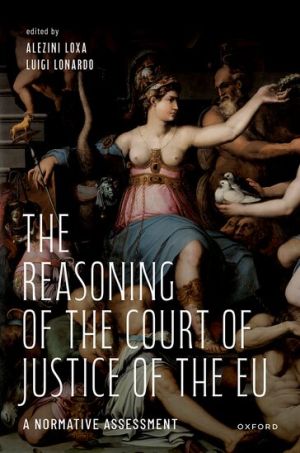
This edited volume offers a groundbreaking contribution to the study of the Court of Justice of the European Union (CJEU) by shifting the focus from descriptive accounts of its jurisprudence to normative evaluations of its legal reasoning. Building on a shared conceptual foundation derived from the Court's adjudicative practices, the book brings together a diverse array of scholarly perspectives that critically assess the CJEU's reasoning both in abstract terms and within specific doctrinal contexts.
The volume is structured around two complementary approaches: one that examines the Court's techniques of adjudication across policy areas through a horizontal, theoretical lens, and another that engages deeply with specific aspects of case law, offering alternative interpretations grounded in distinct normative frameworks. This dual structure enables a rich and pluralistic exploration of what constitutes sound judicial reasoning in the EU legal order.
Unlike previous scholarship that has either endorsed the Court's approach or critiqued it from isolated perspectives-constitutional, democratic, or social-this volume uniquely integrates theoretical abstraction with doctrinal specificity, all while maintaining a coherent conceptual unity. The contributors rigorously engage with the text of judicial decisions, articulating their assessments through clearly stated normative assumptions, theoretical grounding, and an appreciation of the institutional constraints under which the Court operates. While The Reasoning of the Court of Justice of the EU does not seek to define a singular model of a 'good' judgment, it advances the debate by offering methodologically robust and normatively transparent analyses.
This is an open access title available under the terms of a CC BY-NC-ND 4.0 International licence. It is free to read on Oxford Scholarship Online and offered as a free PDF download from OUP and selected open access locations.